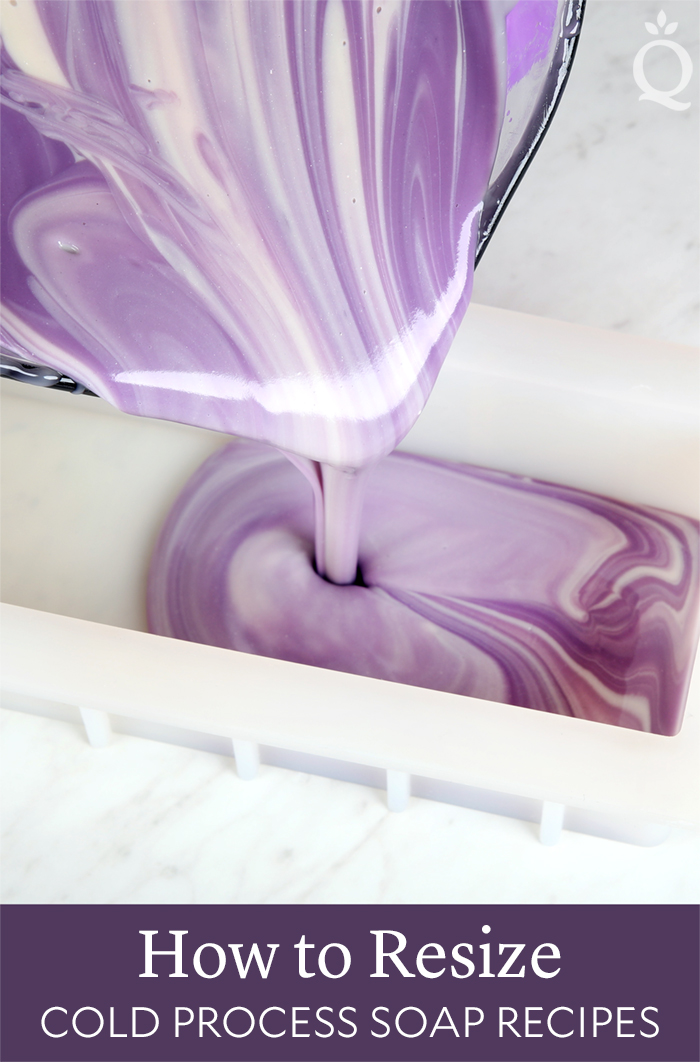
This post was updated in 2018 with the new Bramble Berry Lye Calculator design.
The search for the perfect cold process soap recipe is both fun and a little daunting. There are so many different factors to consider, including the ingredients, the method, and the type of mold. One factor you shouldn’t feel limited by is the size of the recipe. No matter how much the recipe makes, you can resize it to fit whatever mold you have. Resizing a recipe does require a little bit of math, but once you understand the basics of the Lye Calculator, it’s super simple.
The first thing to understand about cold process recipes is the difference between the oil weight and the total yield. A cold process recipe is made of oils, a liquid like water, and sodium hydroxide lye. Those three components create the total yield of a recipe.
For example, the 10″ Silicone Loaf Mold holds about 50 ounces, so the total yield of the recipe should be about 50 ounces. The total oil weight will be less than that because it doesn’t take into consideration the water and lye, which will add several more ounces to the recipe. If the recipe doesn’t tell you the total yield of the recipe, you can add up the oils, lye, and liquid to find it.
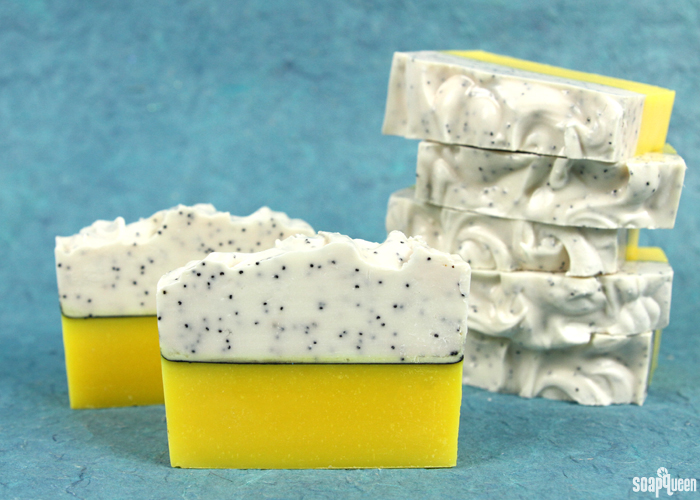
Let’s look at the Lemon Poppy Seed Cold Process Soap as an example. It’s a simple recipe made with coconut oil, olive oil, palm oil, and rice bran oil. Combined, the total oil weight of this recipe is 33 ounces. To find the total yield of this recipe, add the sodium hydroxide and distilled water. That gives you 48.6 ounces.
Lemon Poppy Seed Cold Process Recipe:
9.9 oz. Coconut Oil (30%)
9.9 oz. Olive Oil (30%)
9.9 oz. Palm Oil (30%)
3.3 oz. Rice Bran Oil (10%)
4.7 oz. Sodium Hydroxide
10.9 oz. Distilled Water
Now, let’s say you love this recipe so much that you want to make it in the 5 Pound Mold with Sliding Bottom. That mold holds 5 pounds of soap, which is equivalent to 80 ounces. The easiest way to resize the recipe is with the Lye Calculator. If you’ve never used it before, check out the Using the Bramble Berry Lye Calculator post to learn the basics.
To resize the Lemon Poppy Seed Cold Process recipe, select the type of soap, the unit of measurement, and the superfat level on the calculator. We chose a 5% superfat, but you can change that if you like. Hit “Next” and then enter your oil amounts. Click “Next” at the bottom of the calculator. See the results below.
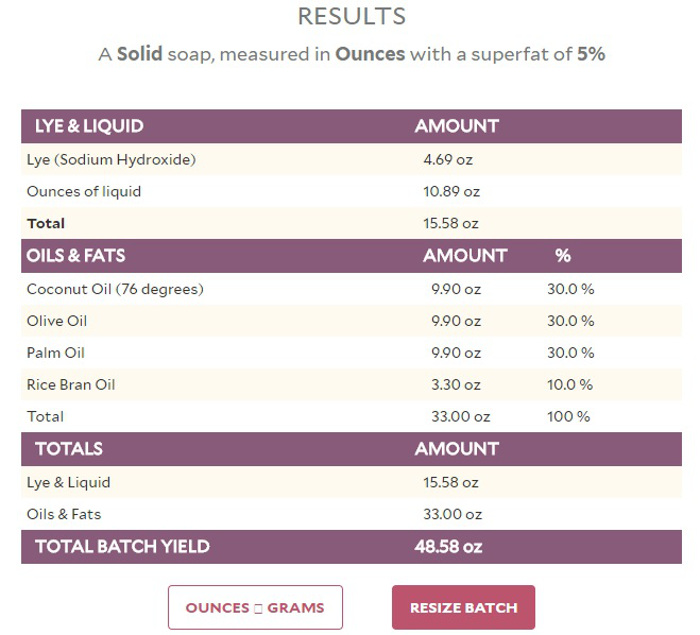
Now it’s time to resize it. See the section at the bottom that says “Resize Batch?” Click that button and enter your oil weight and unit of measurement and then click “Adjust Batch.” Currently, the oil weight for this recipe is 33 ounces. Choosing a new oil weight is a little bit of a guessing game at first. We know we want the total yield of the recipe to be about 80 ounces, but we don’t know what the exact oil weight should be. That’s okay, because you can resize the batch as many times as necessary.
We’re going to guess and input 50 ounces, then click “Adjust Batch.” You can see the new recipe below. With an oil weight of 50 ounces, the new total yield is 73.61 ounces. That’s closer to 80 ounces, but not quite there – time to resize the batch again.
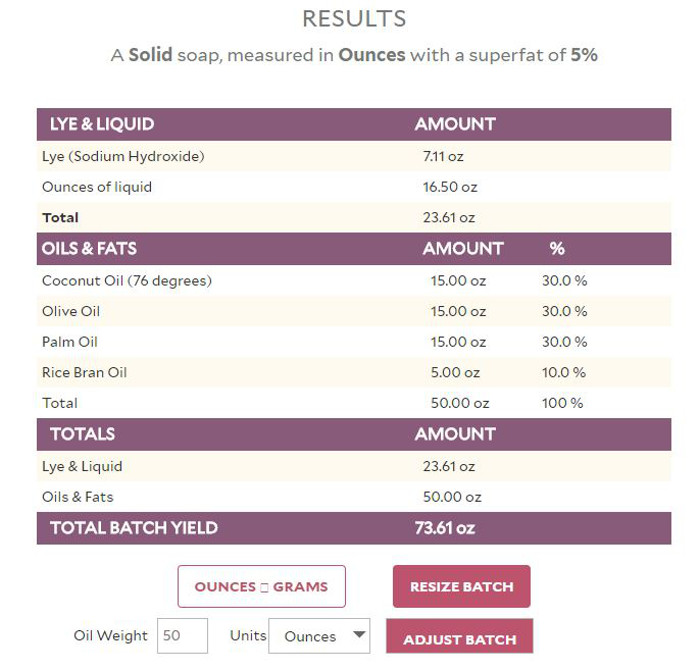
This time, we entered 55 ounces for the oil weight and the total yield was 80.97 ounces. We also tried 54 ounces, which gave us a total yield of 79.5 ounces. Either amount would be fine, but we prefer having a little bit of extra soap just in case. You’ll notice that in all of these recipes, the ratio of oils stays the same.
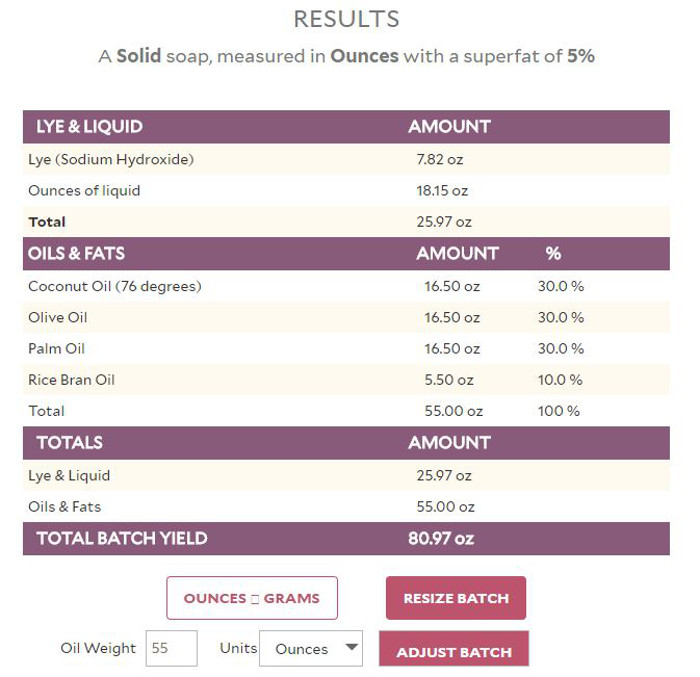
Once the recipe is resized, keep in mind the fragrance oils, colorants, and other additives will also need to be resized. The Fragrance Calculator makes it easy to find out how much scent is safe to use in the recipe. You can adjust the amount depending on personal preference.
The Lemon Poppy Seed Cold Process recipe uses a blend of Champagne and Lemon Verbena Yankee Type Fragrance Oil. The blend uses two parts Champagne to one part Lemon Verbena. When resizing, keep the ratio of the blend the same for a similar scent. Remember soaping is all about personal preference, so feel free to experiment and change blends depending on what you love. Check out the Fragrance Oil Blending Tips post for more information on creating your own blends.
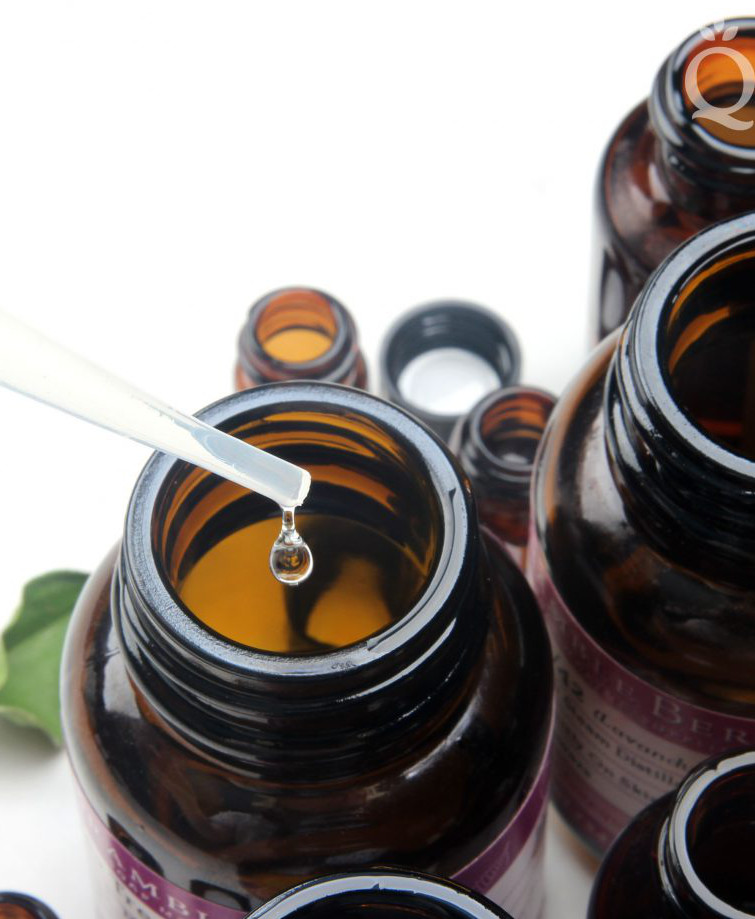 Check out the Fragrance Oil Blending Tips post to learn more about creating your own blends.
Check out the Fragrance Oil Blending Tips post to learn more about creating your own blends.
If you aren’t resizing the recipe in an even amount (halving, doubling, tripling, etc.), it can be tricky to figure out how much colorant you’ll need. We generally recommend preparing extra colorant so you know you’ll have enough. That way you won’t have to prepare more during the soapmaking process. You can store any leftovers in an airtight container in a cool, dry place. They will have the same shelf life as the oil they’re dispersed in. Learn more about the shelf life of oils here.
Just make sure to mix well before using, as the colorants will settle. For information on how to disperse colorants, check out this video on Soap Queen TV. You may also find the How to Get Vibrant Colors in Soap post helpful.
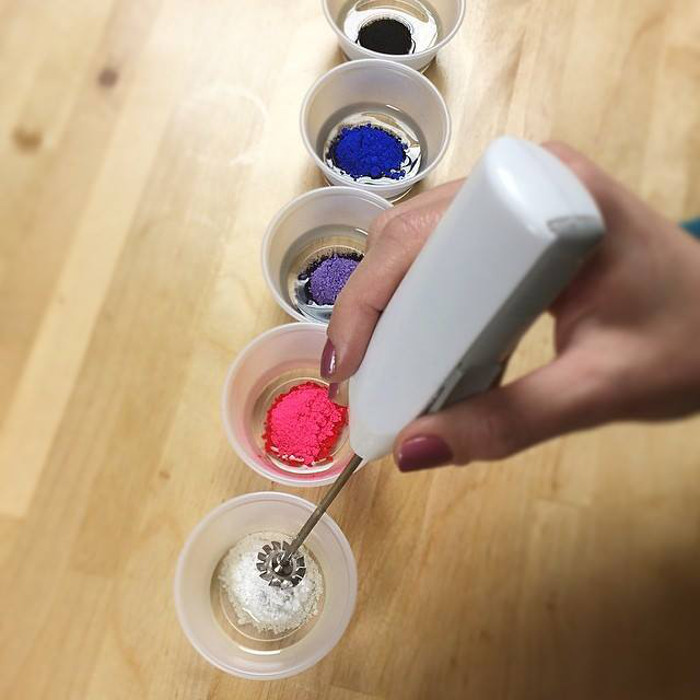 We always like to disperse extra colorant just in case.
We always like to disperse extra colorant just in case.
